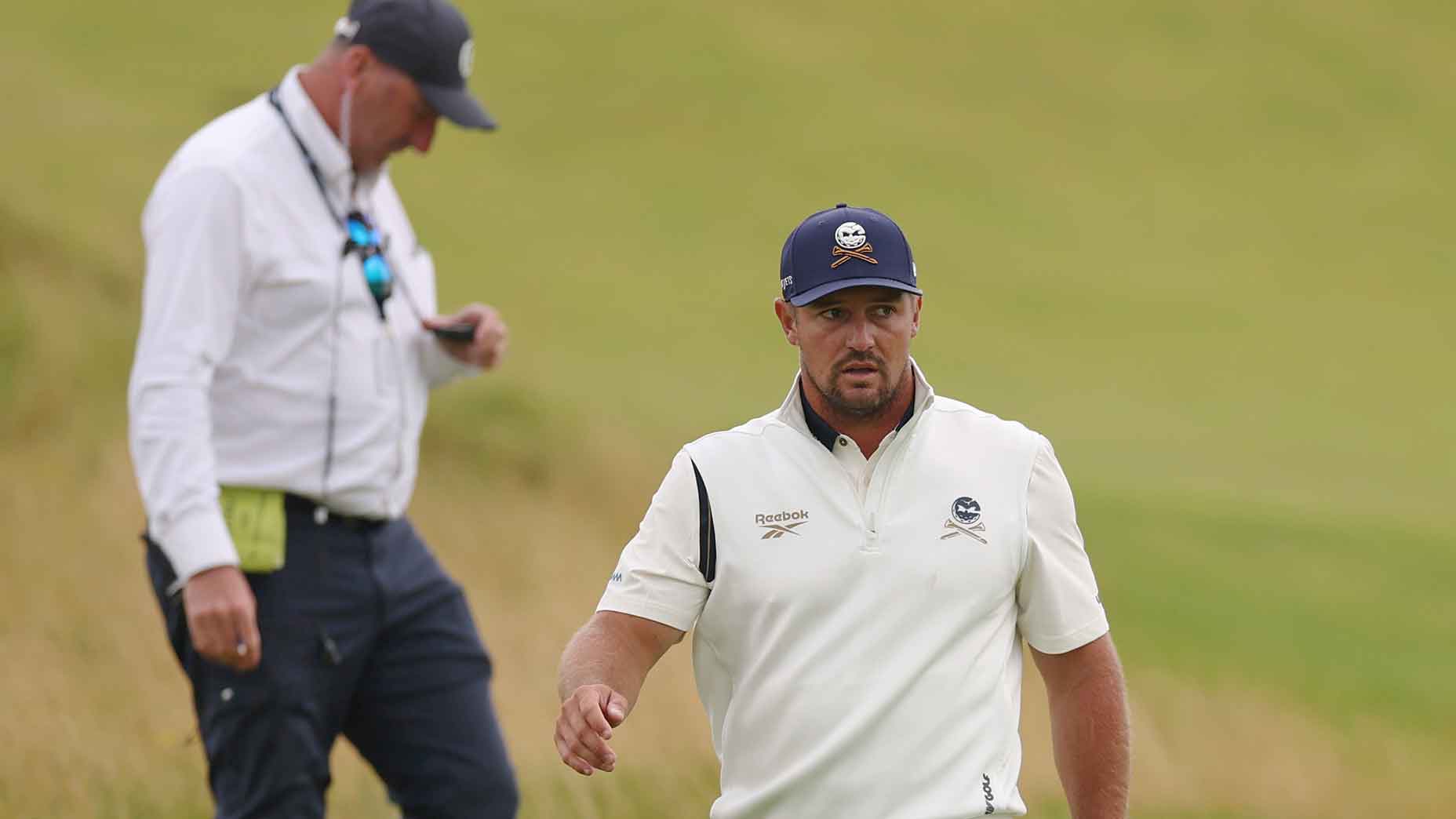PORTRUSH, Northern Ireland — Toward the end of his third round Saturday morning, Bryson DeChambeau wasn’t hiding his feelings. The man was properly frustrated.
In part because he had cruised through the front nine in 33 strokes, and faded on the back, but mostly because he and his group were now being timed by officials. And DeChambeau disagrees with how golf’s governing bodies enforce pace of play.
Once again, pace of play has loomed over a major championship, with many of Thursday’s rounds creeping toward (and some even past) the six-hour mark. The reasons are aplenty — the routing of the course, the types of holes, the speed of the greens, the length of the rough — and we’ve heard them all before. How about the stakes of the match? There are Ryder Cup implications, FedEx Cup implications, career legacy implications, too.
Pace has become one of the most talked-about topics in pro golf. The PGA Tour is limiting the number of players in the field at tournaments next spring because there often isn’t enough daylight to get everyone around the course in time. But for how much it is discussed, it rarely is met with any true solutions.
Enter DeChambeau.
Speaking after that third round, where he shot 68, DeChambeau explained not only why it was frustrating to be put on the clock, but also offered a simple fix he’d love to see implemented. First, on his Saturday timing, DeChambeau believed he had just played into a spot of bother on 16, the long par-3 called Calamity Corner. He grinded out a par while the group ahead of his played the short, drivable par-4 17th in a collective one under.
“He said we just kept losing time,” DeChambeau explained. “Unfortunately on the 16/17 exchange, you’ve got a downhill, drivable hole you can play pretty quick if you get it in the right spot. They did that and we just lost more time to the group in front of us. They put us on the clock, which was unfortunate.”
He managed pretty well, finishing with a couple pars, but brought his thinking cap to the interview area.
As a player who has looked at ways of changing the game, I began, or trying to venture into new worlds of the game, pace of play just never seems to be something that can get figured out. Is it one of this things?
“It’s very simple,” DeChambeau said. “It’s not difficult at all. You individually time everybody for their whole entire round. It’s very simple. Nobody wants to do it. Because people are too scared to get exposed. Which, I’m an advocate for. I’d love to be timed, and I have no problem with that. My putting — I’m more deliberate and take more time on that. But when it comes to iron shots and off the tee, I’m pretty fast.”
DeChambeau cited Dustin Johnson, who seems to him to be “incredibly fast” on full-swing shots, but “really slow” on greens. Everyone is different, but that’s how a lot of pro golf is played. Mostly plodding on the greens, mostly quick elsewhere. But not for everyone. In most cases, pace of play comes down to one group falling behind the group ahead of them. When that’s the case, the group will then be monitored, and if any player takes too long to play a shot — most often 40 seconds when it is their turn — they will then be put “on the clock.” Further infractions of that pace can lead to penalty, which is incredibly uncommon.
DeChambeau just wants the timing to be done from the very first tee-ball, all the way until the final putt drops.
What would we find out in that new system, I asked.
“I think it would be more fair towards everybody,” DeChambeau replied. “You know if somebody is playing slower, the [official] can go up to them and say, ‘Hey man, you’re over par with your time.’ All you do is you just time them for every shot — he gets there, puts the bag down, and how long it takes them to hit that shot. And how long it takes them to walk to the green. It’s not rocket science. You time how long someone takes individually and then you separate that from the other person playing. You start-stop on them the whole entire thing.”
DeChambeau seems to believe that, given how many marshals and officials walk with groups during the biggest events in the sport, that there would be no issue adding a stopwatch to the action.
“You know, it’s one way. I’m not saying it’s the answer,” he said. “I’m definitely not somebody that has the most knowledge or experience on it. You know if somebody has a different way of monitoring it, I hope there’s just a better system out there at some point in time.”
